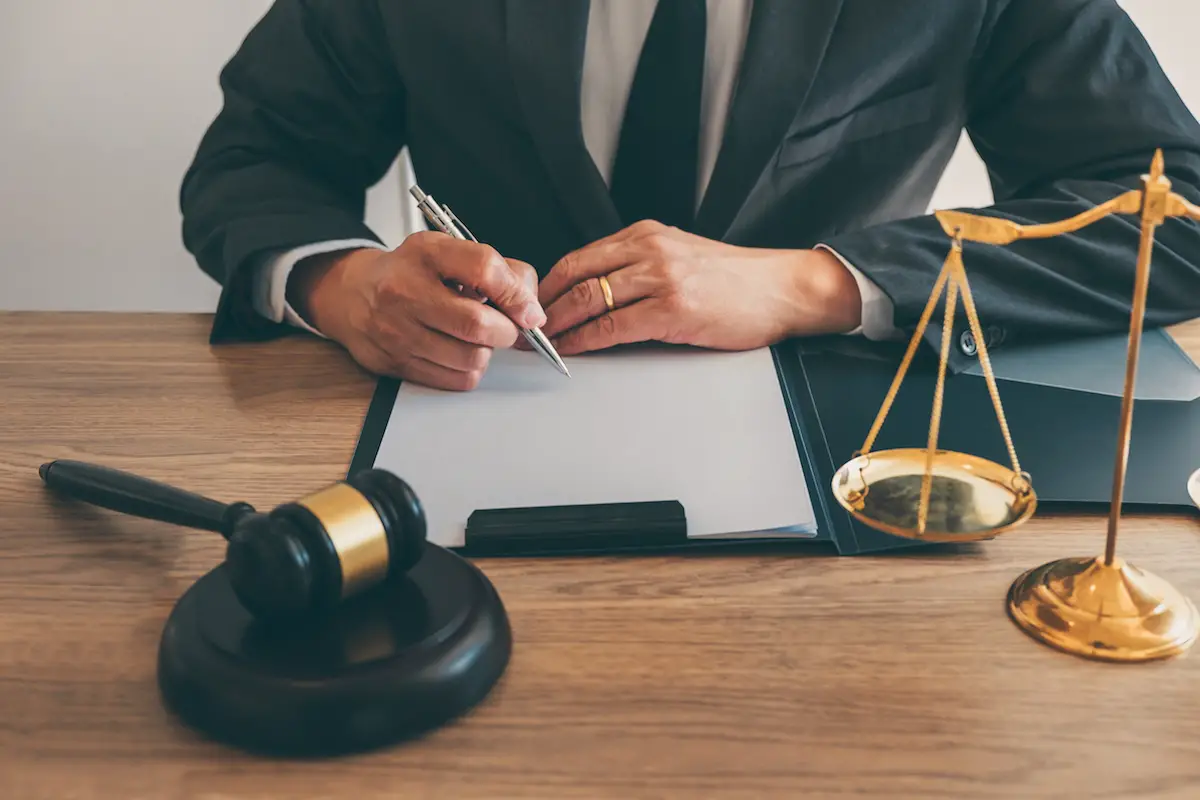Everything To Know About Lawyer Withdrawal Letters
If you are new to the legal world or find yourself in the middle of a trial, you may be wondering what a lawyer withdrawal letter is. When is it used? And how do you switch lawyers if needed? What happens if your lawyer quits during your trial? These are all valid questions that need to be answered if you are preparing for a legal trial of any kind.
First off, what is a lawyer withdrawal letter? This type of letter is typically used when a lawyer wants to quit or withdraw from a case. In order for this to happen, the lawyer must file what is called a motion to withdraw. This motion needs to be approved by the court in order for the lawyer to officially be allowed to quit the case.
There are many reasons why a lawyer may want to withdraw from a case. We will discuss those reasons and cover other related questions in more detail, so keep reading to learn more!

The Purpose of a Lawyer Withdrawal Letter
Again, the main purpose of a lawyer withdrawal letter is to formally (and legally) quit a case. In order to do this, the lawyer must have a valid reason for wanting to withdraw and they must file a motion to withdraw with the court. The reason there is a process in place is to protect the client’s best interests.
For example, if a lawyer withdraws from a case last minute without any notice, it could cause major problems and delays for the client. By having a motion to withdraw approved by the court, it ensures that the client has time to find a new lawyer and prepare for their case accordingly. This process is also in place to protect the legal team as well, as it protects an attorney or lawyer from being in a case they do not want to be in.
Reasons a Lawyer May Withdraw From a Case
There are many reasons why a lawyer may want or need to withdraw from a case. Some common reasons include:
- The lawyer is moving to another state or country
- The lawyer is no longer in practice
- The lawyer is not available for the trial dates
- The client does not want to work with that particular lawyer
- There are conflicts of interest
- The lawyer-client relationship has deteriorated
These are just some of the reasons why a lawyer may need to withdraw from a case. If you find yourself in a situation such as, when working with a personal injury attorney, and they want to withdraw, it is important to understand why. This way, you can make an informed decision about whether or not you want to find a new lawyer or continue working with the one you have.
How To Switch Lawyers
If you find yourself in a situation where your lawyer needs to withdraw from your case, do not panic! You will need to find a new lawyer, but this is not as difficult as it may seem. The best way to find a new lawyer is by asking for recommendations from friends or family members who have been in a similar situation.
You can also look for lawyers online or in directories such as the American Bar Association. Once you have found a few potential lawyers, set up consultations to see which one would be the best fit for your case. If the particular lawyer is withdrawing for simple logistical reasons, you can also just switch to working with their partner or staying within the same firm.

What Happens If My Lawyer Quits During Trial?
If your lawyer quits during the trial, it can obviously cause some major delays and problems. If this happens, the court will appoint a new lawyer to take over your case. This new lawyer will need time to catch up on everything that has happened so far, which could cause delays in the trial.
You may also be able to choose your own lawyer if this happens, but it depends on the situation. If you are unhappy with the lawyer that was appointed to you, you can file a motion to have them removed and replaced with another lawyer. While it is not ideal, there are procedures in place to help protect you if your lawyer needs to withdraw from your case during trial.
The Importance of The Attorney-Client Relationship
The attorney-client relationship is important for a few reasons.
- First, it helps ensure that the lawyer is working in your best interests. If the relationship is not good, it could mean that the lawyer is not adequately representing you or they may be withdrawing from the case for their own personal gain instead of yours.
- Second, a good relationship between you and your lawyer can help ensure that communication is open and honest. This way, you can ask any questions you have about the case and be confident that your lawyer is giving you the best advice possible.
- Lastly, this relationship can be particularly important if your case is very personal. So when working with a personal injury attorney, for example, you want to be able to trust them with personal details and feel confident that they are taking your case seriously.

While the attorney-client relationship is not always perfect, it is important to try and maintain a good one. If you find yourself in a situation where your lawyer needs to withdraw, be sure to take the time to find a new lawyer who you can trust and feel confident working with.
Final Notes
While it can be difficult if your lawyer needs to withdraw from your case, it is important to remember that there are procedures in place to help you. Whether you need to find a new lawyer or the court appoints one for you, be sure to take the time to understand why the withdrawal is happening and what your next steps should be. But now that you know what a lawyer withdrawal letter is, you can be better prepared if this ever happens to you. We hope this article was helpful, thank you for reading!
Related Questions
Can I fire my attorney mid-trial?
If you and your attorney are not getting along or you feel like they are not doing a good job, you can fire them. However, it is generally not recommended to do this during the trial as it could cause delays.
My lawyer withdrew from my case without telling me, what can I do?
If your lawyer withdraws from your case without telling you, it may be difficult to do anything about it. You can try contacting the lawyer to see why they withdrew and if there is anything you can do to fix the situation. If not, you may need to find a new lawyer.








